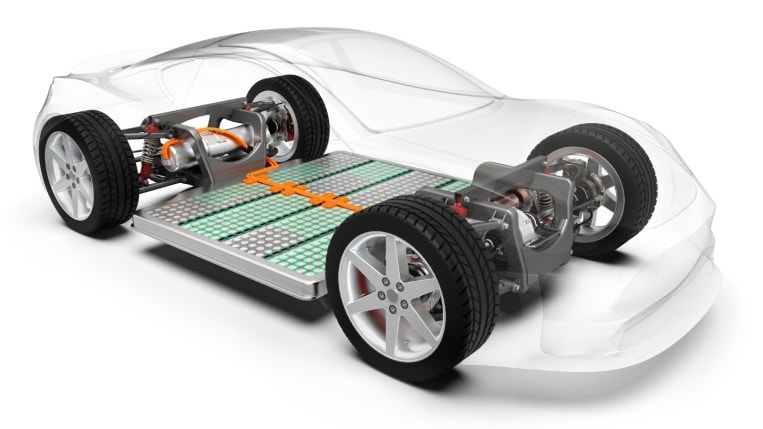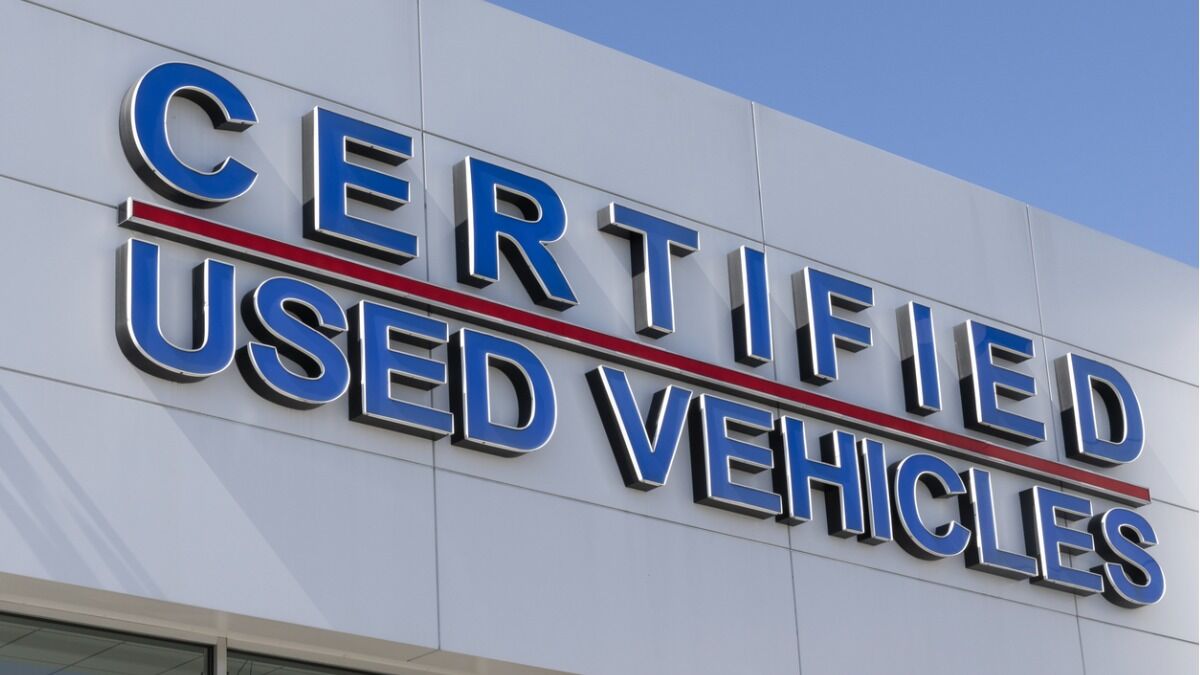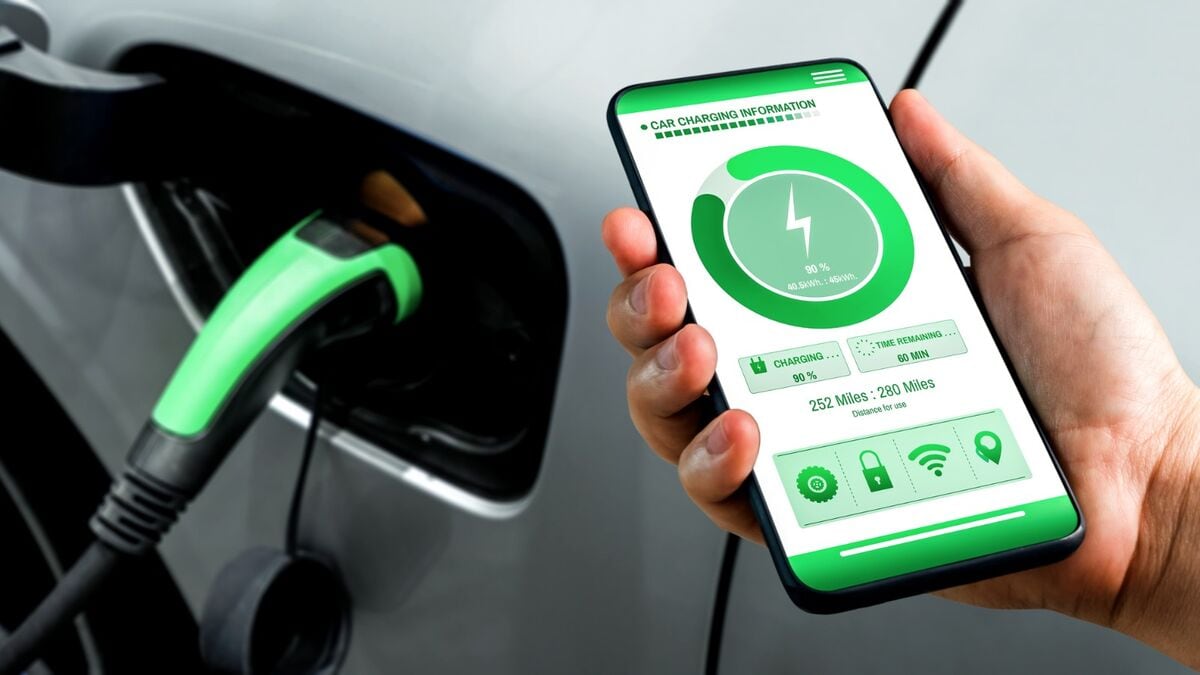One of the biggest perks of electric vehicles (EVs) is that they’re low-maintenance. They never need oil changes, and the electric motors and battery packs are relatively maintenance-free. However, the rubber keeping it on the road is one of the costliest maintenance items for an EV. While EV ownership is generally cheaper than owning a gas-powered car over time, EV tires are expensive. You may find the tires on your electric vehicle require replacement more frequently than your experience with your old car or SUV.
Adding to the pain is a tire shortage impacting the whole industry. EV tires can already be hard to find at an affordable price, but a low rubber supply this year has made that task even more difficult.
Here’s everything you need to know about EV tires.
Why Do EVs Need Special Tires?
Electric vehicles are heavier than their gas-powered counterparts. An extreme example is the mighty GMC Hummer EV Pickup, which tips the scales at 9,063 pounds. That’s about double the weight of a traditional, gas-powered, full-size pickup truck. EVs require special tires that can support the extra weight.
EVs Are Heavier Than Gas Cars
Why are EVs so much heavier than gas cars? Well, an electric powertrain weighs more than a gas powertrain. For example, the Nissan Leaf is about 1,000 pounds heavier than the Nissan Versa, even though they’re about the same size.
Gas engines aren’t exactly light, but they are when compared to heavy electric motors and batteries that power EVs. That weight adds up if an EV has multiple motors and a larger battery pack for extended range and optimal performance.
Tire Size Can Affect Range
If you look at range estimates for EVs like the Tesla Model S, you’ll see that the range and efficiency ratings can vary depending on the wheels. According to the EPA data, the Model S Plaid with 19-inch wheels has a 396-mile range, but the same car with 21-inch wheels only has a 348-mile range.
Narrower tires result in better range because less rubber on the road means less energy is required to move the car. A smaller wheel with a thicker sidewall is advantageous because it has a lower rolling resistance, resulting in better efficiency and range compared to a bigger wheel with a thinner sidewall.
EVs Need Durable Tires
EVs need durable tires because they’re so heavy. Tires designed for EVs often have a high load index, which indicates how much weight the tires can handle. Electric trucks like the Hummer EV and Rivian R1T need especially high load indexes because they’re some of the heaviest vehicles on the market.
Noise
The tires on electric cars are often designed to reduce road noise. On a gas car, the engine drowns some of the road noise generated by the tires. However, since electric powertrains are so quiet, tire noise is more pronounced. A foam inlay inside the tire usually remedies this to reduce the noise.
Can EVs Use Regular Tires?
In theory, you could put standard tires on an EV, but we advise against it. Ordinary tires on an EV negatively impact handling, wear out faster, and can very well pose a safety issue. Any tire on an EV needs to be replaced more frequently than tires on a gas car. Spending more on special tires for EVs that last longer is worth the extra cost at the tire shop.
Some EVs have special tires explicitly designed for that model. For example, the Volkswagen ID.3 is an EV available in international markets and uses specially designed Continental tires featuring low rolling resistance, an aerodynamic sidewall, and low road noise. OEM tires on Tesla models have included the Michelin Primacy MXM4 and Hankook Kinergy GT tries with similar considerations in mind.
Cost of EV Tires
Several factors contribute to tires for electric cars costing more than typical auto tires. They have design elements for high load indexes, low rolling resistance, and unique tread patterns. Engineers develop characteristics that help boost aerodynamics and reduce road noise.
Fundamental economics also has a role in the cost. There’s a smaller field for tires made especially for EVs. This narrow market means less competition, fewer choices, and higher prices.
However, it’s always worth it to pay more for tires designed for EVs instead of trying to save a few bucks by putting regular tires on your electric car. In the long run, EV-compatible tires will last longer, and you’ll spend less than you would have if you got cheaper tires and replaced them more frequently.
Remembering that replacing tires is one of the few EV maintenance costs may help ease any price tag shock.
How the Tire Shortage Affects Drivers
Ongoing global supply chain issues have impacted the rubber industry. That means anyone shopping for tires might find themselves waiting a while for the tires they need to become available. This shortage affects all drivers in the market for tires. However, it can mean even less variety in tire availability if you drive an EV.
What to Look for in EV Tires
Tire manufacturers are good about labeling their EV-compatible tires, along with online tire retailers making it easy to search for the right rubber. Enter your EV’s make and model on the website, and it will show you tires suitable for your car.
Unless you’re looking to change up the size of your tires or get aftermarket wheels, it should be easy to shop for the OEM tire size of your EV. Beyond that, the load index is one of the most important things to check. The higher that number, the more weight the tire can handle. It’s also wise to examine the tires’ warranty, indicating how long you can expect them to last. Follow the manufacturer’s guidelines regarding tire rotation and proper inflation.
Where to Find EV Tires
EVs are far enough into the mainstream that you can find EV-compatible tires just about anywhere tires are sold. Major online tire retailers are your best bet for finding the right fit locally available. Smaller shops will likely be happy to order tires for your EV if you plan ahead.
Read Related Stories:
- Electric Car Rebates and Incentives: What to Know by State
- Busting the Myths and Fears of Buying an Electric Car
- How to Take an EV Road Trip









